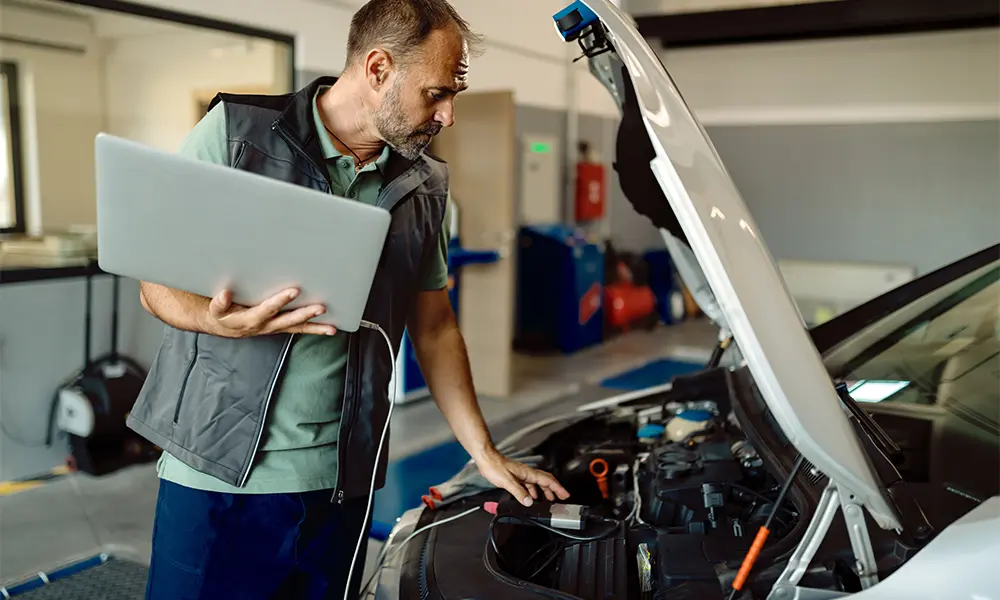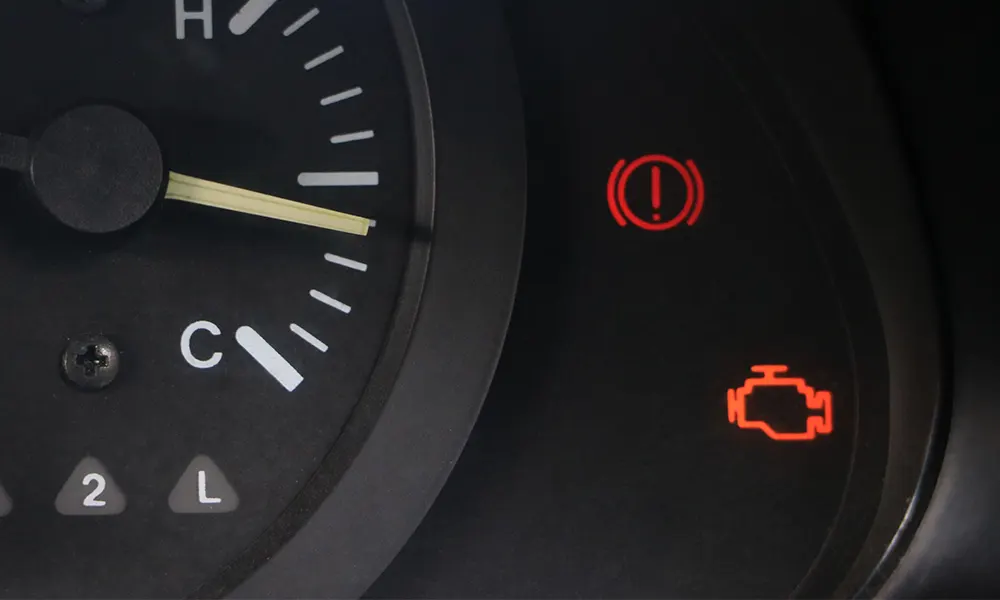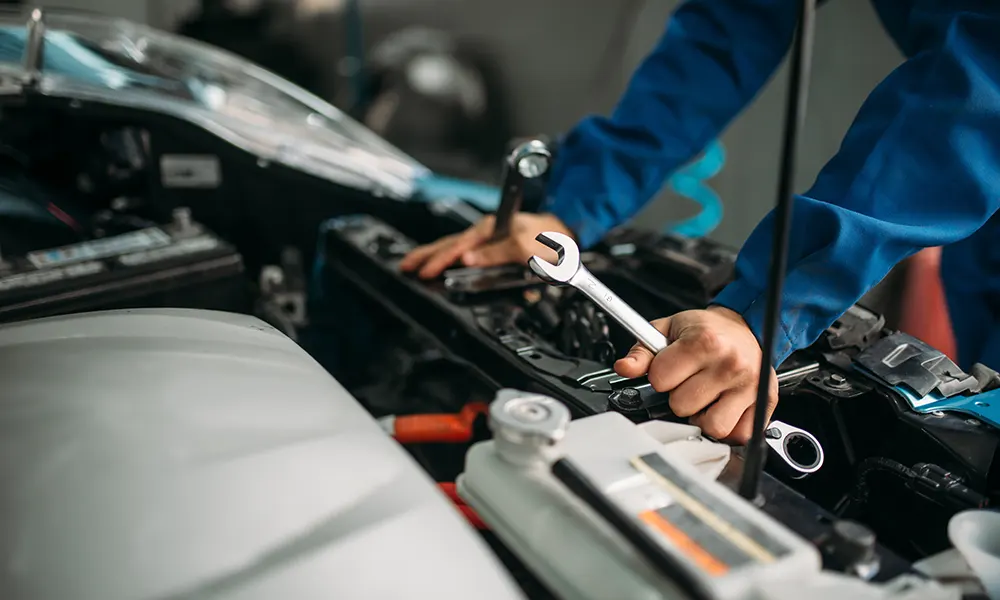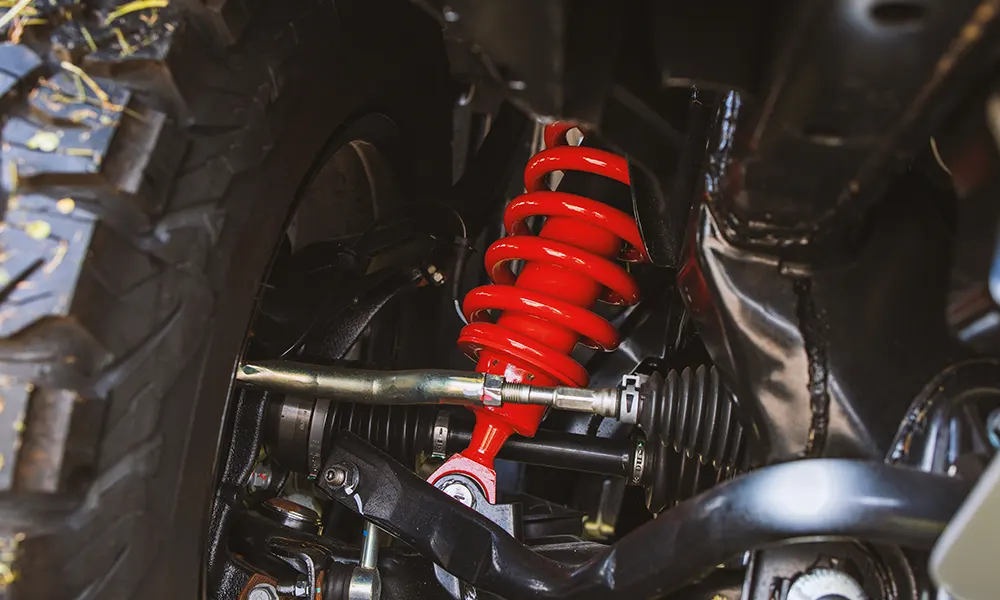You may have heard that electric cars are “low maintenance,” but does that mean they’re maintenance-free?
If you’ve asked yourself, Do electric cars need maintenance, the answer might surprise you.
Electric vehicles (EVs) don’t have oil changes or exhaust repairs, but they still need regular servicing to stay safe and reliable.
Let’s break down what you should know.
Does Electric Cars Need Maintenance?
Yes, electric cars need maintenance, but much less than petrol or diesel vehicles.
Instead of engine oil changes, EVs focus on areas like battery health, tyres, and brakes. Regular checks keep your vehicle performing efficiently and extend its lifespan.
Why EVs Require Less Maintenance Than Petrol Cars
Traditional engines have hundreds of moving parts, while EVs use far fewer. This means less wear and tear.
No spark plugs, timing belts, or transmission fluids reduce service costs dramatically. However, neglecting the systems EVs do rely on can still cause expensive problems.
Essential EV Maintenance Tasks Every Driver Should Know
Your EV’s battery is its heart. Regular diagnostic scans ensure it’s charging correctly and holding capacity. Ignoring battery health could lead to reduced driving range.
Tyre Inspections and Rotations
EVs are heavier than petrol cars, so tyres wear faster. Rotate them every 10,000 km to extend life and improve efficiency.
Brake Maintenance
EVs use regenerative braking, which reduces wear. Still, brake pads and discs need inspection to ensure safety during emergencies.
Cabin Air Filter Replacement
Filters trap dust and allergens. Replacing them regularly ensures clean airflow and prevents musty smells inside the cabin.
Fluids EVs Still Need Checking
While you don’t need oil changes, EVs do use other fluids:
- Coolant: Keeps the battery and electronics at safe temperatures.
- Brake fluid: Maintains braking efficiency.
- Windscreen washer fluid: Simple, but essential for visibility.
These fluids should be topped up or replaced according to your vehicle’s service schedule.
Software Updates and Diagnostics
Unlike petrol cars, EVs often receive software updates. These improve efficiency, add features, or fix safety issues.
Checking for updates regularly ensures your vehicle operates at its best. Some updates require a dealership visit, while others download over Wi-Fi.
Common EV Repairs You Might Encounter
While less frequent, EV repairs can be more expensive. Potential issues include:
- Battery degradation: Reduced range over time.
- Charging port wear: Frequent plugging/unplugging causes damage.
- Suspension strain: Extra weight from batteries stresses shocks and springs.
Catching these early keeps repair bills manageable.
Cost of EV Maintenance vs Petrol Cars
On average, EVs cost 30–40% less to maintain than traditional cars.
- EV servicing: $300–$600 annually.
- Petrol servicing: $600–$1,200 annually.
The biggest risk for EVs is battery replacement, which can cost $10,000–$20,000 if neglected.
How Often Should You Service an EV?
Most EV manufacturers recommend servicing every 12 months or 15,000 km.
Even if the car feels fine, annual inspections catch hidden issues early, saving you from costly breakdowns.
Signs Your EV Needs Attention
Just like petrol cars, EVs give warning signs when something’s wrong:
- Reduced driving range.
- Slower charging speeds.
- Warning lights on the dashboard.
- Strange noises from the suspension or brakes.
Never ignore these red flags.
DIY EV Maintenance: What You Can Do at Home
There are simple tasks you can manage yourself, such as:
- Checking tyre pressure monthly.
- Topping up the washer fluid.
- Cleaning the charging port.
- Keeping the battery charged between 20 and 80% for longevity.
Everything else is best left to qualified EV technicians.
Do EVs Need Roadworthy Inspections?
Yes. In Queensland, EVs must pass the same roadworthy checks as petrol cars.
Tyres, brakes, steering, and lights are all inspected to ensure road safety compliance.
Safety Risks of Skipping EV Maintenance
Skipping EV servicing may lead to:
- Reduced battery performance.
- Costly breakdowns during long trips.
- Safety hazards like brake failure.
- Voiding manufacturer warranties.
Regular servicing isn’t optional; it’s essential.
Conclusion
So, does electric cars need maintenance? Absolutely. While EVs require less upkeep than petrol cars, they still need regular checks to stay safe, efficient, and reliable.
At Car One, we specialise in servicing electric and hybrid vehicles in Brisbane. From battery diagnostics to brake inspections, we help you avoid costly surprises and keep your EV running smoothly.
Call us today on (07) 3607 0215 to book your EV service with Car One, Brisbane’s trusted automotive specialists
FAQs
1. Does electric cars need maintenance?
Yes, EVs still need servicing, mainly focusing on battery health, tyres, and software updates.
2. How often should an electric car be serviced?
Every 12 months or 15,000 km, depending on manufacturer guidelines.
3. What is the biggest maintenance cost for EVs?
Battery repairs or replacement are the most expensive, making regular care vital.
4. Can I maintain my EV myself?
You can handle basic checks, but battery, brakes, and software updates require professionals.
5. Is EV maintenance cheaper than petrol cars?
Yes, typically 30–40% cheaper overall, though major battery repairs can be costly.




